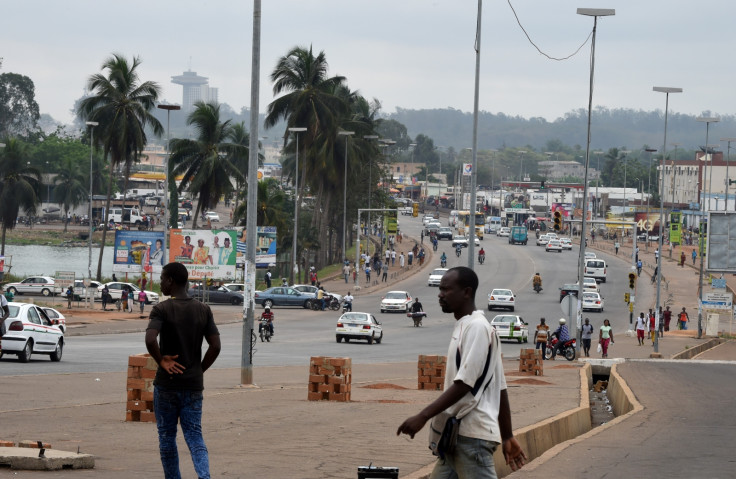Ivory Coast: Civil servants threaten to resort to disruptive strike over backlog of unpaid arrears
Civil servants' warning comes after a series of violent mutinies that broke out in the past two weeks.

Social protests led by civil servants have spread in the Ivory Coast, where firefighters took to the streets on Monday (23 January 2017). The situation continues to be tense in the West African nation, where the government implemented an emergency plan after a series of mutinies broke out in the past two weeks.
To quell these activities, the government agreed to pay CFA12m (£15,726) to 8,500 army officers in the form of financial settlements known as "ecomog" − packages that officers claimed the government agreed with them as part of the Ouagadougou accord, which paved the way for an end the country's civil war, but were never delivered.
The mutinies effectively led to a wider social movement that spread to several cities in the country on Monday, including in the commercial capital, Abidjan. On Saturday (21 January), the workers' inter-union announced it would be continuing its two-week general strike.
In the city's Cocody neighbourhood, soldiers, gendarmes, teachers, civil servants and healthcare professionals joined a firefighters' demonstration, which police dispersed with tear-gas bombs after a couple of hours.
Negotiations between the workers and Ivory Coast's Inter-Ministerial Committee progressed last week: on Sunday evening, the president of the inter-union, Théodore Gnagna Zadi, announced that the union was lifting its general strike order.
The RFI news website has reported that two issues remain: premiums pay-offs promised to several categories of workers in 2009 of up to CFA200bn (£262m), and the issue of increments and promotion. Despite the lifting of the strike, many administrations and schools across the country were either blocked or not operating at full capacity.
"The public servants' base says it is not satisfied with what the government has done. The government has taken no step with regards to both retirement and the arrears backlog, not even a simple recognition," said Gnagna Zadi, who heads the National Platform for Organisations in the public sector of Côte d'Ivoire. "We think it is necessary for the government to say something meaningful and clear about these two provisions."
The Ministry of the Civil Service is expected to meet the dissatisfied workers during a meeting of the social dialogue committee on Tuesday (24 January), during which the parties are to discuss the civil servants' demands. The stakeholders are also poised to prepare a major forum that would be held on 23 February in order to resolve this issue.
Strengthened in their determination to succeed after the military managed to make themselves heard by the authorities, civil servants threatened to pursue their strike.
© Copyright IBTimes 2025. All rights reserved.






















